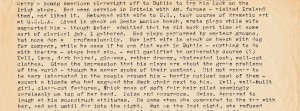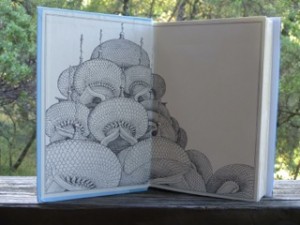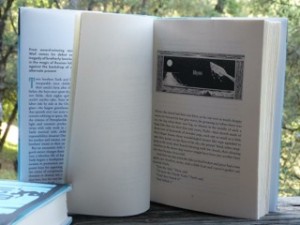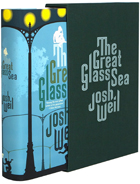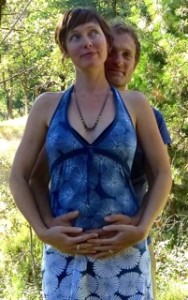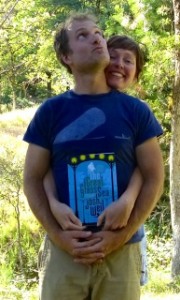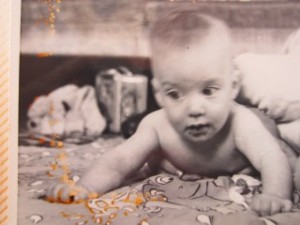Archive for the ‘fiction’ Category
Doomed romance on the high seas
Observing one’s fellow passengers is a major pastime on board a ship crossing the Atlantic, especially for someone with dreams of making her name as a writer. Among the yellowing notes in my old black filing cabinet I found a brief sketch of a man who shared our dining table when Tony and I crossed from New York to Southampton in April 1962.
Gerry was a young American playwright off to Dublin to try his luck on the Irish stage. He told us he lived in a shack on Santa Monica beach, where his wife supported him while he wrote plays. The plays had been performed by amateur groups, but not professionally. He has left the wife in the shack on the beach with her dog for company, while he tries find work in Dublin – anything to do with theatre – stage hand, etc. I wrote:
Tall, lean, dark-haired, glasses, rather dreamy abstracted look, well-cut clothes. Gives the impression that his plays are about the grave problems of the world, though he never spoke of their content. Did not appear to be very interested in the people around him – hardly noticed most of them – except a blonde who had engaged the deck chair next to his. Tall, well-built girl, clear-cut features, thick mane of soft fair hair piled seemingly carelessly on top of her head. Poise and assurance. Swiss. Appeared to laugh at his moonstruck attitudes. He came when she commanded to the bar with her, and sat until far into the night. But on the last night, she refused to come to the empty chair at our table to join him in coffee and liqueurs – pleaded another engagement. So he had a liqueur brought to her at her table. Conspicuous mark of favour, as no-one else at that table was drinking liqueurs. Gerry utterly miserable until he left the ship – followed her with his eyes like a dog, and spent as much time as possible with her. She tolerated this, but obviously not as heart-broken as he.
My writer instincts set me to imagining the wife and creating motivations for Gerry and the blonde woman:
Can infer probably wife G. left at home was too devoted, believing too much in his great abilities. Probably small and neat, shiny dark hair, possibly cut short, light blue eyes. Quite happy to provide material needs so that he can have peace to get on with his writing. Likes to discuss his plays with him as he writes, but believes everything he does is so good that she is unable to provide stimulus by disagreeing with him.
By contrast, the blonde doesn’t give a damn about him, is contemptuous of his writing ability, but still allows him to flatter his ego a little by accepting attentions from him. G. confused in his own mind. Talks a great deal about his wife – not about what she is like, but her abilities at cooking, etc. – providing him with comfort, pampering him, giving him the security that a child needs, and that he is now missing. At the same time tormented by the physical attractiveness of the blonde, and by her superiority to him, not only assumed by her, but actually so: she is more sure of her place in the world. He finds her indifference to his art stimulating and at the same time humiliating; he believes very seriously in his art, but as yet has nothing to prove it to himself or others – no success as a practical yardstick. Believes he can see new horizons of human experience opening for him in the duality of his relationship to her, excited by the effect this will have on his art, though as yet it does not occur to him how he will put this into words, and is more attracted to her because of this.
Most of his actions a form of posing, related to his belief in himself as an artist, e.g., self-conscious staying up drinking far into the night, arriving half an hour late for meals, with the obvious inference that he has been too lost in his art to notice the time, or else too busy drinking his life away at the bar – those around are expected to take the explanation that appears to them the most romantic.
I don’t know how the rest of Gerry’s life turned out. Googling his name turned up no clues. All that remains is this little story of a doomed shipboard romance and a young man with a dream.
Josh Weil novel launched
I’m so proud of young novelist Josh Weil, whom Mendocino Coast Writers Conference picked as a rising star and invited to be on faculty at our 2013 conference. Here’s news from Josh worth sharing:
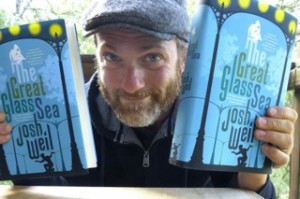 literary prize, the most incredible first-edition program I’ve ever seen, my complete book tour schedule—but there are two reasons, above all else, that this issue of The Gazette is a pretty special edition.
literary prize, the most incredible first-edition program I’ve ever seen, my complete book tour schedule—but there are two reasons, above all else, that this issue of The Gazette is a pretty special edition.“[An] impressive debut…As broad as its themes are—touching on political, philosophical and historical divisions—Weil’s first novel is rooted in family and fine storytelling; it’s an engaging, highly satisfying tale blessed by sensitivity and a gifted imagination.”
“A tale of longing and sadness, threaded by Russian folklore and heavy with the weight of love…resplendent and incandescent.”
“A well-timed dystopian tale, the novel beautifully details both the politics of [an] hypothetical Russia—“oligarchs bred beneath the clamp of communism let loose upon loot-fueled dreams”—and its impact on one small family.”
And the first newspaper review (out even before the official publication date!) was even better:
“If complex literary novels really are done for, Josh Weil must’ve missed the text message. His formidable “The Great Glass Sea” knits together strands of traditional Slavic folklore and futuristic speculative fiction to create a passionate reflection on technology and personal happiness. Spanning almost 500 pages, the novel poses mind-bending questions about politics, ecology and the ambivalent closeness of siblings…Weil pulls off dazzling strokes of storytelling…His distinctive voice obliges readers to slow down and swish certain passages around before swallowing…While keeping the sophisticated themes afloat (science vs. nature, the state vs. the individual, family obligation vs. ambition), almost every page flows with respect for the flawed, endearing heroes, Dima and Yarik. Pushing the envelope on literary artistry even further, each chapter begins with a pen-and-ink illustration by the author….A genre-bending epic steeped in archetypal stories, “The Great Glass Sea,” rises above the usual Cain-and-Abel formula by way of sensitive, resourceful craftsmanship.”
And here’s me, now, signing off and saying thank you, again, for continuing to care about what that tyke’s grown up to love, what the writer he became now does, these words on a page that I am so lucky to be able to share with you.
Two Neighborhoods
In honor of Martin Luther King Day, I pulled out the manuscript of a novel I wrote around the time of his death. I had become involved as a volunteer in fair housing issues and wanted to write about what I was learning. I was a new immigrant to the US, clueless about racial issues in this country; the battered manuscript box has deservedly sat in the bottom drawer of an old filing cabinet ever since.
An incident based on my research for the book has stuck with me, however. The central character, a young woman newspaper reporter, works in Palo Alto, CA and goes to East Palo Alto, a black neighborhood just across the freeway, to interview a community organizer. Here are excerpts from a few paragraphs:
The afternoon was hot, and she was thankful for the shade of the overhanging trees as she drove down University Avenue toward East Palo Alto. She had never been there before. There had been nothing to go for. And she would have felt diffident about going to a black ghetto as a mere sightseer, even if it had occurred to her to do so.
As she came down the ramp on the other side of the freeway, she knew she was in a different country. The road was suddenly potholed and bumpy, and brown dust rose in thick choking swirls from its verges. She slowed and looked about her. Such tiny bedraggled houses, desperately in need of paint. Yards littered with junk, yet here and there a brave attempt at order and color. She came upon a few tatty shops. Surely this couldn’t be the main shopping center? Yet soon she could see the sign, NAIROBI SHOPPING CENTER, and underneath, in a language she could not understand, UHURU NA UMOJA.
Showing the predictable set of fears and prejudices about the African-American people she sees around her, the reporter parks her car and walks to her appointment, during which she is invited to sit in on a fair housing case.
She said goodbye, and walked slowly back to the car, past the Louisiana Soul Food Kitchen and the Black and Tan Barber. The heat and dust were almost unbearable.
Back across the freeway, she noticed for the first time the neatly swinging redwood sign: Welcome to Palo Alto. A few blocks further down University and it hit her like a punch in the gut. She pulled over to the side of the road and rested her head on the steering wheel, fighting back an impulse to vomit. The contrast was an obscenity. Huge magnolias here lined the street on both sides, giving deep dappled shade to the well-paved highway. Between the road and the white concrete sidewalks rose great greening mounds of juniper and ivy, and beyond them, with manicured lawns and discreet sprinkler systems, were the complacent mansions of the rich.
Between Storms
Mid-morning the sky clears, a break between storms. Our generator rumbles. The power is out, a downed line somewhere back in the forest. So is our cable internet service. From the house we can see spume lifting high over the cliffs. Nothing for it but to go there, to walk the cliff path around the Mendocino Headlands, to exult in the roar, the tumble of white, the spritz of salt spray on our faces. At the big blowhole near Main Street, huge plumes of water rise with a satisfying ker-thump.
We decide to avoid the muddy parts of the trail further on, and head up to Main Street. Nearly all the stores are closed because of the power outage. But Gallery Bookshop, on the corner of Main and Kasten, is open, though unlit. We step in to say hi.
“Electricity, schmelectricity,” laughs Christie, the owner. “We never close. We just do everything on paper and input it later. We have the little swipe-swipe machine for credit cards. The only thing that’s hard to do without the computer is book searches.”
Tony finds a novel he wants, Hilary Mantel’s Wolf Hall, winner of the 2009 Man Booker Prize. At the checkstand in the center of the store we chat with Christie and two other staff members, Johanna and Jane, about this book and another we’ve been reading lately, A.S. Byatt’s The Children’s Book. I love the cosiness of these conversations about books. I love being a local in this remote and beautiful place.
